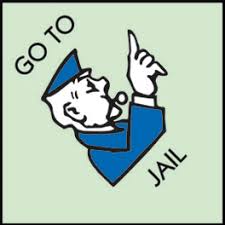Too Big to be Accountable: The Big Case Dilemma

Over the last twenty year (yes, 20 years), the Justice Department’s civil and criminal enforcement record has come under greater scrutiny. Whether you call it “Too Big To Jail” or “Too Big to Fail,” questions continue to rise on whether “big” companies are fairly investigated and prosecuted.
On the “Too Big to Fail” scale. DOJ and criminal justice commentators point to the Arthur Andersen criminal prosecution that was eventually reversed by the Supreme Court in Arthur Andersen v. United States, 544 U.S. 696 (2005). Andersen was charged with obstruction of justice for destroying documents relating to Enron’s activities.
Arthur Andersen suffered more than reputational damage’ Arthur Andersen went out of business and 28,000 employees lost their jobs. While Arthur Andersen eventually was vindicated in the Supreme Court’s reversal of its conviction because of an error in the jury instructions relating to “consciousness of wrongdoing,” justice was too late – Arthur Andersen was defunct.

DOJ has been reluctant to indict companies since the Andersen debacle, and companies have folded in response to threats of indictment and agreed to plead deals or more likely deferred prosecution agreements. This is not a hard and fast rule – DOJ indicted Federal Express for drug trafficking and eventually dismissed its case. DOJ’s Antitrust Division recently indicted Teva Pharmaceuticals for participation in a criminal price-fixing conspiracy.
The controversy surrounding corporate criminal responsibility continues with the focus on payment of large fines and imposition of independent corporate monitors. When it comes to corporate fines, some suggest that such a penalty only punishes unfairly shareholders who end up paying the fine in reduced stock value. But this argument has to consider whether shareholders can seek corporate reform in response to misconduct through shareholder derivative suits or seek basic corporate changes to replace board members and management. A company forced to pay a large penalty for misconduct will suffer reputational harm. Beyond that, senior managers may not suffer any penalty, except if they earn a smaller bonus. That rarely happens.
Over the last few years, DOJ has articulated a view that prosecution of culpable individuals is the most effective deterrent to corporate misconduct. This may be true but the issue is not black or white – a mix of corporate and individual prosecutions may be the appropriate balance.
The lowest point in this continuing debate had to be the absence of criminal prosecutions during the financial crisis between 2007 to 2010. As described in the revealing book by Jesse Eisinger, The Chicken S— Club: Why the Justice Department Fails to Prosecute Executives, DOJ’s failure to prosecute individuals responsible for the financial crisis reflected internal mis-management, failure of leadership, and an overblown response to an early loss of a criminal case in New York. DOJ’s misfire during this era had a devastating impact on the perception of our criminal justice system, and the cynical belief that the rich will always escape accountability for white collar crimes.

I have often pointed to the Justice Department’s Antitrust Division criminal enforcement program as a good example of a balance between corporate and individual prosecutions. On average, for every company prosecuted, the Antitrust Division charges three individuals.
Under the Antitrust Division’s Leniency Program, the first company to cooperate, along with the executives and employees, all receive immunity. Subsequent companies plead guilty and pay a fine. The later the company agrees to plead guilty and cooperate, the higher the penalty amount. Recently, however, the Antitrust Division required pharmaceutical companies to enter into deferred prosecution agreements (DPAs) rather than plead guilty because a conviction would disqualify those companies from “federal health programs,” i.e. Medicare, Medicaid.
In the last five years, we have seen a steady rate of prosecution of individuals in a variety of criminal cases, including FCPA, auto and food safety and corporate safety. The Yates Memorandum issued in 2015 may have had an impact. In addition, political and public pressure put more focus on this important issue.
As we prepare for the new Biden Administration, this is an issue that requires continuing focus. A new Attorney General and senior leadership team at DOJ will need to address this important issue and the proper focus on corporate and individual prosecutions.















With President-elect Biden starting to pick his team members, old names are starting to crawl from under the rug like Eric Holder and others. I suspect even Hillary will be making a “comeback.” Regardless of how you feel about such individuals, many names reborn from the Obama administration will definitely have an impact on retirement accounts, most likely having a negative impact for millions of hard working individuals trying to save for their retirement.
As a “refresher” course for your readers who enjoy a short memory, I recommend several Frontline productions by Martin Smith, including “The Retirement Gamble” and “The Pension Gamble.” For younger savers these videos, still available to watch on the internet, will provide insight for what is likely ahead in their future efforts to save. Correspondent Martin Smith investigates how Wall Street led America’s public pensions into a multi-trillion-dollar hole, and the financial institutions that were never held accountable.
Once again, thanks for a great article.